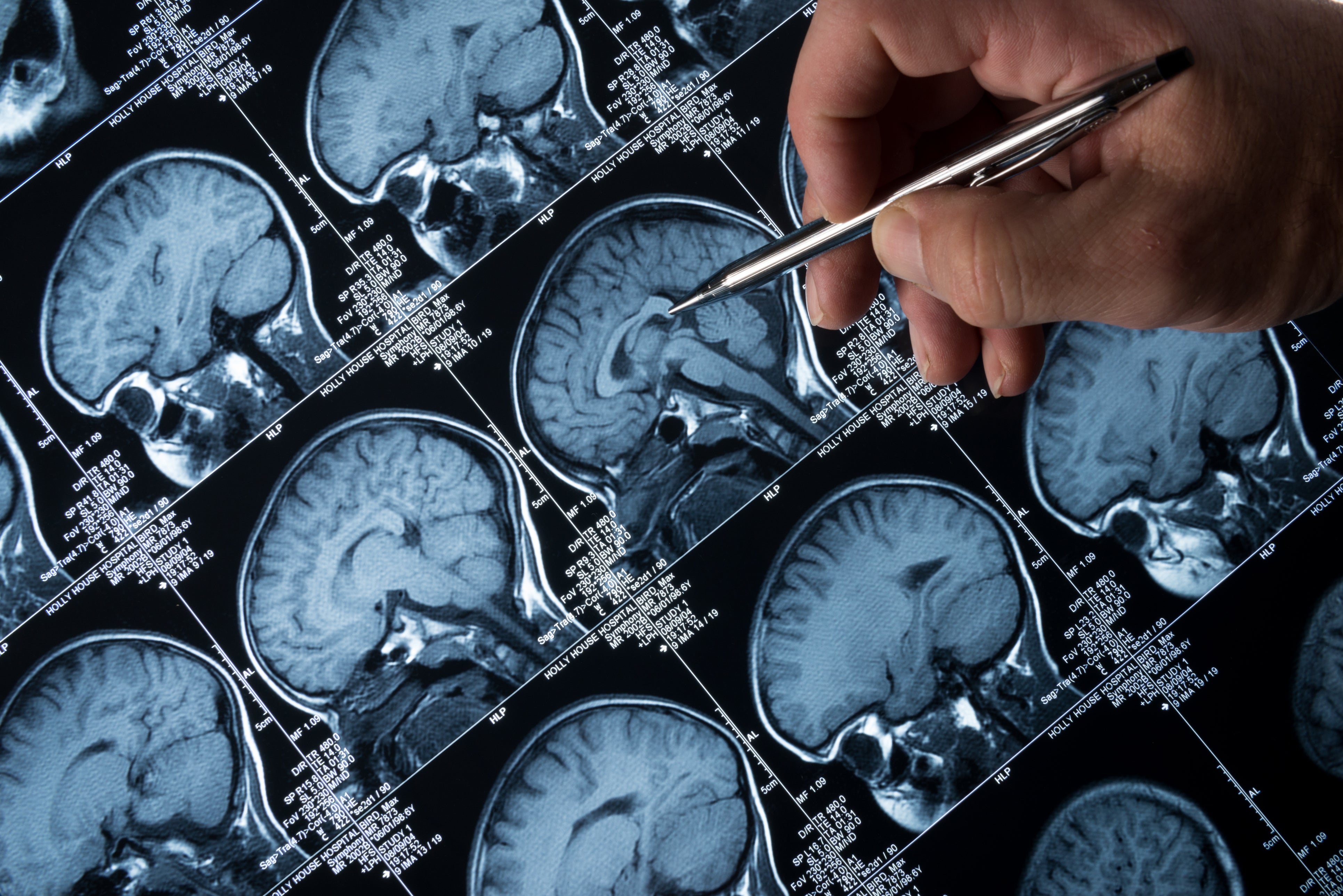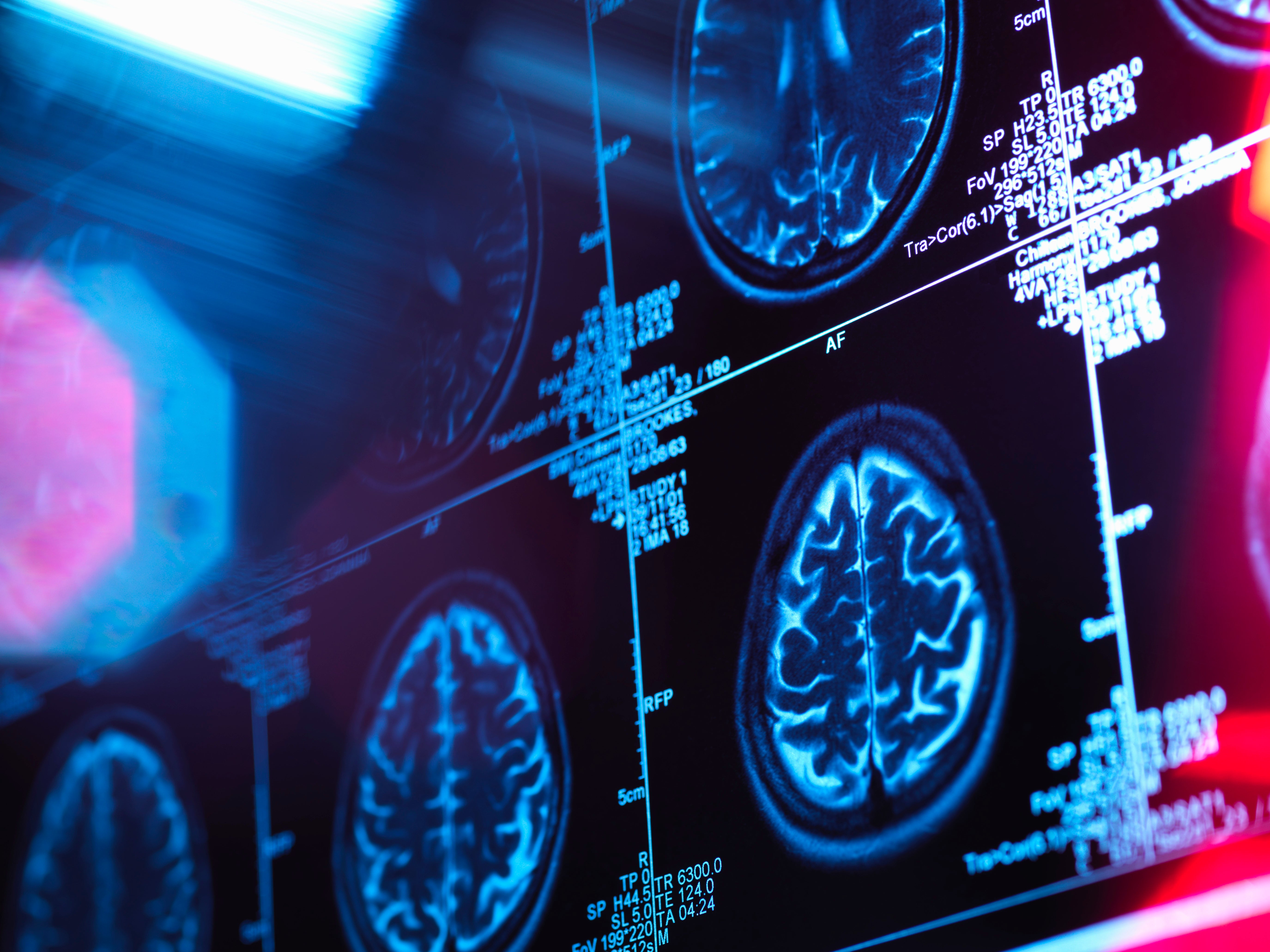More people could soon be diagnosed with ‘stage one’ Alzheimer’s, but what are the signs and what happens next?
A new blood test could show you if you are at risk of developing dementia – as early as 20 years before the disease progresses. Here, Flic Everett looks at what an early diagnosis really means…


The spectre of dementia looms as early as midlife, whether due to caring for ageing parents or our own increasing memory lapses. But while we may note moments of forgetfulness, loss of judgement or even behavioural changes, it’s difficult to tell whether these are early signs of Alzheimer’s. Often, by the time it’s diagnosed, for many, it is too late to slow progress.
“Currently, the vast majority of people living with dementia don’t have access to the specialist tests needed to confirm whether they have the disease,” says Dr Alex Osborne, a policy manager at the Alzheimer’s Society.
“Diagnosis rates hit a five-year low during the pandemic and have been slow to recover. But dementia is the UK’s biggest killer and with new treatments in the pipeline, we need to improve diagnosis rates so people can get the vital care and support they need.”
Now, the US-based Alzheimer’s Association has suggested a new approach, which could predict the likelihood of developing Alzheimer’s years before symptoms even become apparent.
Blood tests – currently unavailable on the NHS – have been developed to diagnose levels of amyloid, an abnormal, fibrous protein that affects cognitive functioning, along with tau, a “tangled” protein which affects neural processing. Those who show unusually high levels would be warned that they’re at risk of developing Alzheimer’s, a version of dementia which worsens progressively, and classified as “stage one” – although it may never progress.
“The purpose of this initiative is to advance the science of early detection and treatment … to prevent dementia,” said Maria Carrillo, chief science officer of the Alzheimer’s Association. “To do so, we need to detect and treat the disease before symptoms appear.”
A stage two diagnosis would recognise “neurological issues” such as unusual anxiety or depression, stage three, memory and reasoning problems in those still otherwise functioning well, and the final three stages would chart the disease’s progression from mild to moderate and finally very severe – meaning little or no recognition of familiar people and places and the need for full-time care.
“Alzheimer’s disease (AD) is currently classified into three main stages: early, middle and late,” explains Alzheimer’s expert Dr Emer MacSweeney, medical director at Re:Cognition Health. “However, the progression of the disease can vary widely, and not everyone will experience the same symptoms or stages,” she adds.
The Alzheimer’s Society estimates that one in three of the UK population lives with undiagnosed dementia, and estimates around 944,000 people currently have the disease, with over a million sufferers predicted by 2030. Alzheimer’s generally affects those over 60 which accounts for 60 per cent of diagnoses and is putting immense strain on carers, social services and the NHS. Current tests of cognitive ability, however, can prove inconclusive.
While frontotemporal dementia often develops in those younger, these tests will be able to detect other kinds of dementia which could develop years later. Dr Veronika Matutyte, a gerontologist who specialises in Alzheimer’s, says, “identifying the early signs of Alzheimer's requires a keen awareness of subtle cognitive changes. Memory lapses, particularly in recalling recent information, may be one of the earliest indicators.”
It might feel empowering [for some] to understand their likelihood of developing the disease, but for many others, it could be a catalyst for fear and uncertainty
As these signs can often be mistaken for normal, age-related forgetfulness, she emphasises “the importance of considering a combination of factors, such as changes in problem-solving abilities, difficulty completing familiar tasks, or challenges in spatial orientation”, she says. “Regular cognitive assessments are invaluable in catching these signs early.”
The idea would be that we’d all have access to these new blood tests which would indicate if disease is present – even if it never fully develops. Why? Because, Dr Matutyte says, “recent findings provide intriguing insights into the molecular and genetic underpinnings of stage one Alzheimer’s”.
Biomarkers can indicate the disease’s onset years before clinical symptoms show, and these biomarkers are biological molecules found in blood, fluids or bodily tissues. “Neuro-imaging technology and fluid biomarkers offer promising avenues for early detection,” continues Matutyte. “This helps our understanding of the disease and opens doors for interventions that may slow its progression.”
The Alzheimer’s Society is now working on a project to build evidence that blood testing for Alzheimer’s is accurate and has partnered with Alzheimer’s Research UK, together with the National Institute for Health and Care Research, to change the way dementia is diagnosed.
“Toxic versions of amyloid protein and tau protein are the hallmarks for AD, and to date, these biomarker diagnostic tests require very expensive PET-CT brain scans, which are used almost exclusively in clinical trials,” says Dr Emer MacSweeney.
“The trials are researching the effectiveness of the new generation medications, designed to treat abnormally elevated amyloid and tau proteins,” she explains. “However, over the past few years, research into biomarkers has been focused on the development of relatively simple, ubiquitous blood tests, to enable an early accurate diagnosis. The latter is essential for the effective use of the new medications designed to slow, or ideally halt, progression.”
As for any medication designed to slow a disease’s progress, she adds, “It will be most effective if given as early as possible.” Medication can slow the disease’s progression by several years in some cases, buying valuable time for patients.
Currently, the challenge is that the symptoms develop so gradually that those with the disease and their families often don’t realise until symptoms have progressed beyond the early stage – to the point where the new treatments are less likely to be successful.

“The toxic amyloid and tau protein destroy the brain cells, which unlike most cells in the body are unable to regenerate,” MacSweeney explains. Abnormal levels of amyloid proteins can begin to build up to 20 years before the first symptom.
Research from both UCL and the University of Cambridge has also found that poor spatial navigation could predict Alzheimer’s 20 years or more before memory loss becomes apparent.
A study of people under 60 who had some genetic or lifestyle risk of developing the disease showed that men who were more at risk struggled most with spatial tasks such as being unable to plan and follow a route which indicates multiple factors, including attention, memory, perception, and decision-making, are compromised. Women were not affected at all, but researchers hope the findings will lead to better early diagnosis in future.
But while early diagnosis offers great benefits in slowing the progress of the disease, psychologists sound a note of caution. “These scientific developments offer powerful information, but it’s important for medical professionals to understand the potential emotional impact of this type of diagnosis,” says psychotherapist Georgina Sturmer.
“Patients need to be made aware of the implications of diagnosis, and offered the support they need in coming to terms with it.”
For some, she adds, “It might feel empowering to understand their likelihood of developing the disease, but for many others, it could be a catalyst for fear and uncertainty.”
Clinical psychologist Dr Marianne Trent agrees. “In NHS services, dementia diagnoses are usually done via a team approach, after careful assessment and discussion, by psychiatrists, psychologists and other professionals,” she explains. “There is often aftercare support too, because this news can have such a profound impact on the individual and those who love them, and it’s vital that any very early diagnosis offers the same support.”
In the meantime, we should all be eating a healthy diet of unprocessed foods whenever possible, taking regular exercise, socialising, managing stress and getting decent sleep, adds Dr MacSweeney – all things which have been shown to support cognitive function and protect brain health.
“It’s also important to note that whatever is good for the heart is good for the brain. High blood pressure, diabetes and obesity are all associated with an increased risk of cognitive decline, so by following heart-healthy principles you will be helping your brain,” she says. “And the earlier you start, the better.”
Join our commenting forum
Join thought-provoking conversations, follow other Independent readers and see their replies
Comments
Bookmark popover
Removed from bookmarks